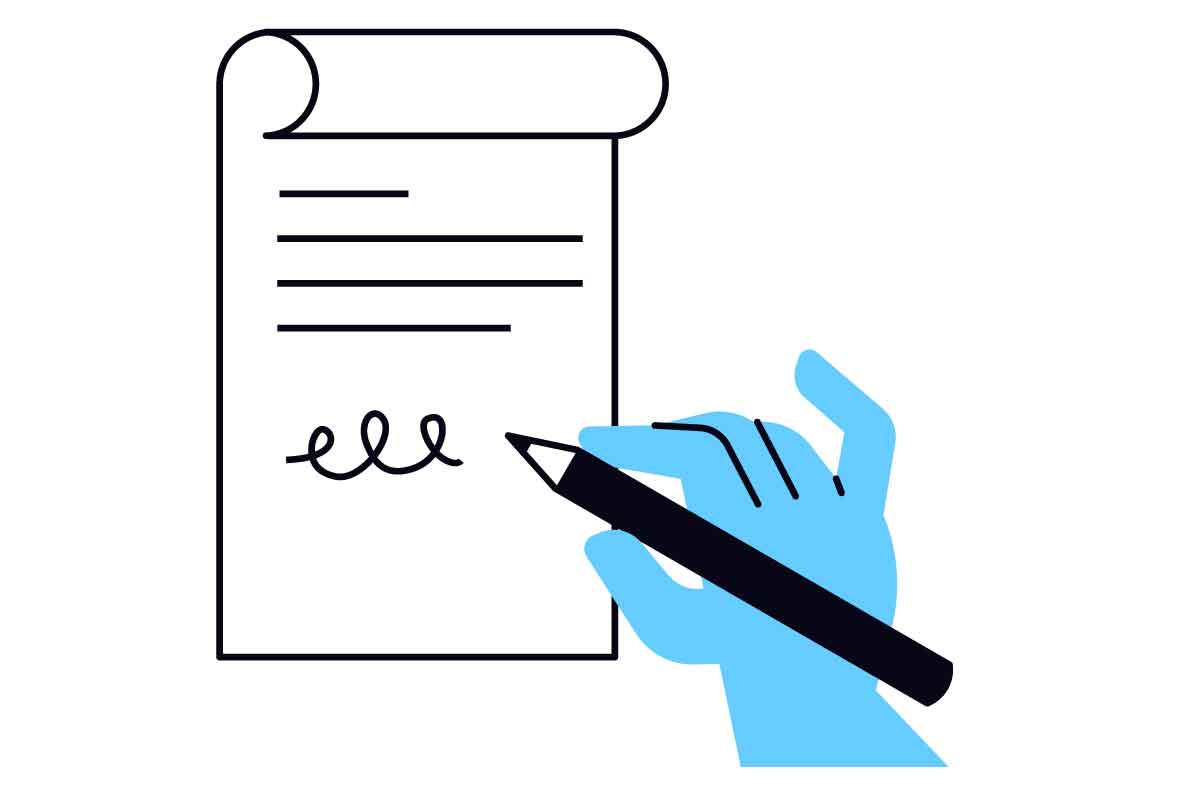For many businesses, managing cash flow and ensuring a healthy working capital is crucial for sustained growth and success. One effective financial tool that can assist in this regard is debt factoring.
In this article, we will delve into the world of debt factoring, exploring what it is, how it works, its benefits and drawbacks, and how UK business owners can effectively utilise this financing option to their advantage.
Featured pro tools
Explore business banking
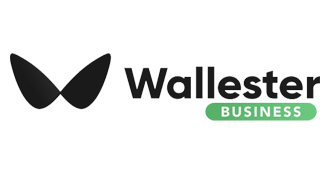 |
Wallester Business ✓ Virtual & Physical Cards ✓ No Setup Fees ✓ No Monthly Fees Pricing Trial period Contact |
|
 |
Revolut Business ✓ Business Current Account ✓ Award-Winning Mobile App ✓ Quick & Easy Application Process Pricing Trial period Contact |
|
 |
Tide Business Bank Accounts ✓ Free, Plus, or Pro Account ✓ iOS & Android Mobile App ✓ Upload & Auto-Match Receipts Pricing Trial period Contact |
|
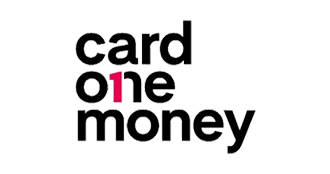 |
Card One Money ✓ No Credit Checks ✓ Simple Fees ✓ Up to 3.5% Cashback Pricing Trial period Contact |
|
 |
ANNA Money ✓ Apply in 10 minutes ✓ Bookkeeping & Payroll Tools ✓ User-Friendly Mobile App Pricing Trial period Contact |
|
 |
Co-Op Business Banking ✓ Business Current Account ✓ Online, App & High Street Banking ✓ Quick & Easy Application Process Pricing Trial period Contact |
|
 |
HSBC Business Banking ✓ Business Current Account ✓ In-Branch, Online & App Banking ✓ FSCS Protected Pricing Trial period Contact |
|
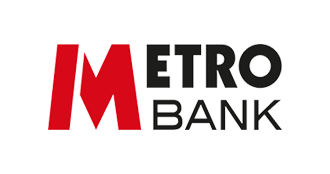 |
Metro Business Banking ✓ Business Current Account ✓ High Street Presence ✓ FSCS Protected Pricing Trial period Contact |
|
 |
Mettle Business Banking ✓ Business Bank Account ✓ Online & App ✓ Quick & Easy Application Process Pricing Trial period Contact |
|
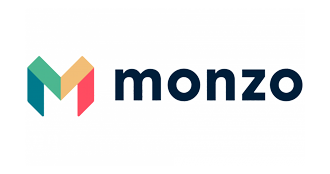 |
Monzo Business Banking ✓ Business Current Account ✓ Dedicated mobile app experience ✓ FSCS Protected Pricing Trial period Contact |
|
 |
Virgin Money ✓ Business M Account ✓ In-Store, Online & App Banking ✓ Insights & Forecasting Platform Pricing Trial period Contact |
What is debt factoring?
Debt factoring, also known as accounts receivable financing or invoice factoring, is a financial arrangement in which a business sells its accounts receivable (unpaid invoices) to a third-party financial institution called a factor.
The factor purchases the outstanding invoices at a discounted rate, providing immediate cash flow to the business. The factor then assumes responsibility for collecting payments from the customers, typically deducting a small fee for their services.
Debt factoring statistics
- According to the Asset Based Finance Association (ABFA), in 2020, the total value of invoice finance and asset-based lending provided to businesses in the UK reached £22.7 billion.
- The ABFA also reported that in the UK, invoice finance facilities supported over 46,000 businesses in 2020, providing them with working capital to support their operations.
- According to a survey conducted by the British Business Bank, 71% of businesses that use invoice finance stated that it helped them improve their cash flow, while 64% reported it helped them manage their credit control.
- The Global Factoring Market Report 2020-2024 by Technavio projected a compound annual growth rate (CAGR) of over 11% for the global factoring market during the forecast period.
- In the UK, the overall volume of factored invoices increased by 5% in 2020 compared to the previous year, as per the UK Finance Business Finance Review 2020/2021.
- A study by the Institute of Directors (IoD) found that 65% of UK businesses cited late payments as a significant issue, impacting their cash flow and hindering growth. Debt factoring can help address this issue by providing immediate access to funds.
- According to the National Federation of Independent Business (NFIB), around 64% of small businesses face delays in receiving payments from customers, which can create cash flow challenges.
- The Credit Management Research Centre at Leeds University Business School found that businesses that use factoring experience improved liquidity, with a 17% increase in the speed of debt collection compared to businesses that do not use factoring.
- The British Chamber of Commerce reported that 61% of UK businesses faced overdue payments in 2020, causing financial strain. Debt factoring can help mitigate this risk by transferring the responsibility of collections to the factor.
- A survey by YouGov revealed that 33% of UK small businesses experienced cash flow difficulties due to late payments, impacting their ability to invest, pay suppliers, and cover operational costs.
These statistics highlight the significance of debt factoring as a financial tool to address cash flow challenges, manage credit control, and improve liquidity for businesses, particularly in the context of late payments and invoice delays.
How debt factoring works
How to do debt factoring
- Application
A business owner applies to a debt factoring company, providing details about their business, outstanding invoices, and customers.
- Verification
The factoring company evaluates the creditworthiness of the business’s customers and the collectability of the invoices. This assessment determines the factor’s risk and the terms of the agreement.
- Financing agreement
Once approved, the business and the factoring company enter into a financing agreement, specifying the terms, discount rate, and fees involved.
- Invoice submission
The business submits selected invoices to the factor, usually with a copy of the invoice and any supporting documentation.
- Advance payment
The factor advances a percentage (typically 70-90%) of the invoice value to the business within 24-48 hours.
- Collection and payment
The factor manages the collections process, dealing directly with the customers to secure payment. Once the customers settle their invoices, the factor pays the remaining balance to the business, minus the factor’s fees.
Benefits of debt factoring
- Improved cash flow: Debt factoring provides immediate access to cash, reducing the wait time for invoice payments and enabling businesses to meet their financial obligations promptly.
- Reduced credit risk: The factor assumes the credit risk associated with the invoices, providing protection against bad debts and potential losses.
- Outsourced collections: Businesses can focus on core operations as the factor takes over the time-consuming task of collecting payments, saving resources and improving efficiency.
- Flexible financing: Debt factoring grows in line with the business’s sales, making it an adaptable financing option that can support expanding operations.
Considerations and drawbacks
- Cost: Debt factoring involves fees and discount rates that can be higher than traditional loans. However, these costs are justified by the convenience and benefits provided.
- Customer perception: As the factor takes over the collections process, customers may be aware of the arrangement. It is crucial to choose a reputable factor to maintain positive customer relationships.
- Eligibility criteria: Factors evaluate the creditworthiness of the business’s customers. Businesses with customers who have poor credit may face difficulties in securing factoring arrangements.
How much does debt factoring usually cost?
Debt factoring, like any financial service, comes with costs and fees that businesses need to consider. While the specific rates may vary depending on the factors involved, there are common elements to be aware of when assessing the cost of debt factoring.
Here are the typical components that contribute to the overall expense:
- Discount rate: The discount rate is the percentage of the invoice value that the factor deducts as its fee. It usually ranges from 1% to 5%, depending on factors such as the creditworthiness of the customers, the volume of invoices, and the industry. Higher-risk invoices or industries may attract higher discount rates.
- Service fee: Factors often charge a service fee, which can be a monthly or annual fee based on the total volume of invoices factored. This fee covers the administrative costs associated with managing the factoring arrangement and providing ongoing support.
- Collection costs: If the factor encounters difficulties in collecting payments from customers, additional collection costs may apply. These costs can arise if the customer defaults or if the invoice remains unpaid after a specified period. It is important to understand the terms regarding collection costs before entering into a factoring agreement.
- Application and due diligence fees: Some factoring companies may charge an application or due diligence fee to cover the cost of evaluating the business’s eligibility for factoring and conducting credit checks on customers. These fees are typically one-time payments and may vary from one factor to another.
- Minimum volume requirements: Factors may set a minimum monthly or annual invoice volume that a business must meet to be eligible for their services. Failing to meet these requirements can result in additional charges or a higher discount rate.
- Termination or exit fees: Businesses should be aware of any termination or exit fees associated with ending the factoring agreement prematurely or switching to a different factor. These fees can vary and may be charged based on the remaining contract period or a percentage of the outstanding invoices.
It is important for business owners to carefully review the terms and conditions, fee structures, and any potential hidden costs associated with debt factoring. Comparing multiple factoring providers and negotiating terms can help businesses secure the most favorable and cost-effective arrangement for their specific needs.
Ultimately, while debt factoring may have higher costs compared to traditional financing options, the benefits of improved cash flow, risk reduction, and streamlined operations often outweigh the associated expenses. It is crucial for business owners to weigh the costs against the advantages to determine whether debt factoring is a suitable financing solution for their business.
Summary
Debt factoring offers UK business owners a valuable tool to optimise cash flow, strengthen working capital, and streamline financial operations.
By partnering with a reliable factor, businesses can benefit from improved liquidity, reduced credit risk, and outsourced collections.
However, it is essential to carefully consider the associated costs, potential customer perception, and eligibility criteria before deciding if debt factoring is the right financing option for your business.
With the right approach, debt factoring can be a powerful instrument to enhance financial stability and fuel growth in today’s competitive business landscape.
Debt factoring FAQ
Debt factoring can benefit businesses across various industries, including manufacturing, wholesale, distribution, and services. It is particularly useful for businesses that operate on credit terms and face challenges with cash flow due to delayed customer payments.
In most cases, customers are aware of the factoring arrangement since the factor handles the collections process. However, reputable factors maintain professionalism and work to preserve positive customer relationships. Communication and transparency with customers regarding the factoring arrangement can help alleviate any concerns.
The time to set up a debt factoring arrangement varies depending on factors such as the complexity of your business, the responsiveness of the factor, and the due diligence required. On average, the setup process can take anywhere from a few days to a couple of weeks.
Yes, most factoring arrangements allow businesses to select which invoices they want to factor. You can choose to factor all invoices or select specific ones based on your cash flow needs.
Typically, factors advance around 70-90% of the invoice value upfront. The specific percentage depends on factors such as the creditworthiness of your customers, the industry you operate in, and the terms of your factoring agreement.
In debt factoring, the factor assumes the credit risk associated with the invoices. If a customer fails to pay, the factor will usually handle the collections process and attempt to recover the outstanding amount. However, factors may charge additional collection costs or apply a reserve against potential bad debts.
Yes, you can negotiate payment terms with your customers as usual. The factoring arrangement does not restrict your ability to set credit terms or negotiate with your customers. However, it is essential to inform the factor of any changes in payment terms to ensure accuracy in the factoring process.
No, debt factoring is not a traditional loan. It is a financing arrangement based on the sale of accounts receivable. Unlike a bank loan, debt factoring provides immediate cash flow by leveraging the value of unpaid invoices rather than creating debt.
Debt factoring primarily relies on the creditworthiness of your customers rather than your business’s credit. Therefore, even if your business has poor credit, you may still be eligible for debt factoring if your customers have a solid payment history.
Yes, many factors offer international debt factoring services. However, the terms and availability may vary depending on the countries involved, the creditworthiness of the customers, and the factor’s international capabilities. It is advisable to discuss your international factoring needs with potential factors.
It is important to note that specific terms and conditions may vary among factoring companies, and it is crucial to thoroughly review and understand the details of any factoring agreement before entering into one. Consulting with financial professionals and factoring specialists can provide further clarity and guidance tailored to your business’s specific needs.

